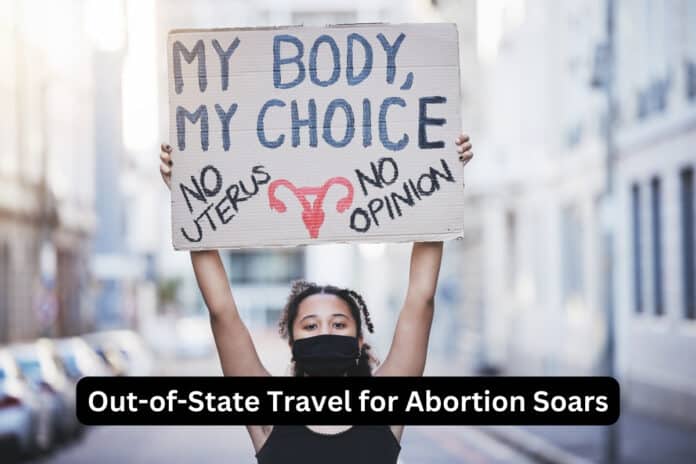A new study by the Guttmacher Institute reveals a dramatic increase in patients traveling out-of-state for abortions following the Supreme Court’s decision to overturn Roe v. Wade in 2022.
Key Findings:
- Over 171,000 people traveled across state lines for abortions in 2023, more than double the number in 2019.
- This surge is attributed to state-level abortion bans and restrictions enacted after Roe’s reversal.
- Southern states with the strictest abortion laws saw the highest increases in out-of-state travel for the procedure.
- Illinois received the most patients seeking out-of-state abortions, while Texas had the most residents leaving for care elsewhere.
Pre-Roe vs. Post-Roe Travel:
Prior to 2022, patients might travel due to legal restrictions or provider availability in their state. However, the post-Roe landscape forced many to travel long distances due to a complete lack of access at home.
Impact of State Bans:
- States with existing restrictions have always seen a higher number of residents traveling for abortions.
- The overturning of Roe exacerbated this issue, as previously accessible neighboring states also implemented bans. For example, Louisiana residents who once went to Texas for abortions now travel to farther destinations like Florida or Illinois.
Travel Trends:
- Patients generally sought care in the closest state with legal abortion access.
- Residents of southern states, facing the most restrictive laws, often had to travel across multiple state lines.
Also Read: Fowlerville Community Schools Welcomes New Recreation Director, Greg Goffee
State-Specific Data:
- Texas led the nation in out-of-state travelers, with most heading to New Mexico.
- Illinois became the top destination state, receiving patients from 16 different states.
- Florida played a significant role in providing access, but its recently enacted six-week ban is expected to significantly decrease that number.
Looking Ahead:
The Guttmacher Institute warns that Florida’s ban will not only affect its residents but also those from surrounding states with even stricter restrictions. As of June 2024, 14 states have near-complete abortion bans, with several others having severe limitations.
This data highlights the significant burden placed on individuals seeking abortion care due to restrictive state laws. It underscores the far-reaching impact of these policies and the lengths people will go to access essential healthcare.

